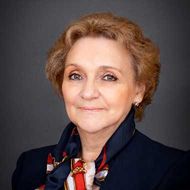- A
- A
- A
- ABC
- ABC
- ABC
- А
- А
- А
- А
- А
-
School
-
Online
The School of International Regional Studies is a research and educational centre seeking to revive international regional studies as an academic discipline in Russia. The department’s world-class professors train the next generation of regional studies specialists while developing an increasingly prestigious research school.
Vinogradov A., Streltsov D., Nelidov V. et al.
Singapore: Palgrave Macmillan, 2024.
Seyedi Asl S., Sadygzade M., Alamdari S. Z.
Journal of Social Studies. 2025. Vol. 11. No. 1. P. 1-7.
Kanaev E., Fedorovskiy A., Kupriyanov A. et al.
In bk.: Russia and the World: 2024. Economy and Foreign Policy. Annual Forecast. IMEMO RAN, 2024. P. 105-111.
Shein S., Ryzhkin E.
Political Science. PS. Высшая школа экономики, 2022. No. 89.

Session “Middle East”
The most important task for modern science of international relations is the search for optimal forms of interaction and overcoming mistrust, conflicts of interest between global and regional actors; the resolution of this task is possible only by the combination of theory and comprehensive knowledge of the region. The chairs of the session were Andrey Baklanov, Head of the Middle East and North Africa Research Sector, Department of Foreign Regional Studies and Naseem Khan Achakzai, Executive Director of the Center for Sustainability Research and Practice of University of Lahore. In the framework of the panel session, the necessary synthesis of approaches of theoreticians and practicians, researchers and diplomatic officials, experts in international affairs and Asian studies.
The session was opened by the report about problems of political development strategy’s diversification in Arab World made by Vasilii Kuznetsov, Head of the Center of Islamic and Arabic Studies, Institute of Oriental Studies of the Russian Academy of Sciences (RAS). Interaction of global and regional players in nodal and conflict zones of the Middle East and North Africa in Syria and Libya accordingly, was examined in the reports by Maria Khodynskaya-Golenishcheva, Senior Advisor of the Department of Foreign Policy Planning of Ministry of Foreign Affairs of the Russian Federation and Grigory Lukyanov, Deputy Head of the Joint Department of RAS Institute of Oriental Studies. The works of Vladimir Sazhin, Researcher at the Center of the Middle East Studies of RAS Institute of Oriental Studies and Pavel Shlykov, Associate Professor of the Department of Middle East History of the Institute of Asian and African Studies of Moscow State University were dedicated to the transformation of the role of Iran and Turkey in settling regional conflicts. The participants paid special attention to consideration of Pakistan’s place and role in the changing regional area that was reflected in the reports made by Naseem Khan Achakzai, Ramazan Daurov, Head of the Afghanistan Sector of RAS Institute of Oriental Studies, and Natalia Zamaraeva, Senior Researcher of the Center of the Middle East Studies of RAS Institute of Oriental Studies.
On November 27, students and postgraduate students from HSE University, Moscow State Institute of International Relations, Moscow State University, and Ural Federal University took part in the student roundtable “Old and New Regional Powers in the MENA: Economic, Political and Military Aspects of Competition and Cooperation”. The chair of the roundtable was Grigory Lukyanov, Deputy Head of the Joint Department of RAS Institute of Oriental Studies and HSE University. In the framework of student roundtable, 12 reports that were presented and discussed, concerned a great number of pressing challenges and issues that characterized change in the approaches to the definition for the characteristics of regional leadership and status of individual states, along with the peculiarities of transformation of regional state policies and displacement of regional centers of power.
- About
- About
- Key Figures & Facts
- Sustainability at HSE University
- Faculties & Departments
- International Partnerships
- Faculty & Staff
- HSE Buildings
- Public Enquiries
- Studies
- Admissions
- Programme Catalogue
- Undergraduate
- Graduate
- Exchange Programmes
- Summer Schools
- Semester in Moscow
- Business Internship
-
https://elearning.hse.ru/en/mooc/
Massive Open Online Courses
-
https://www.hse.ru/en/visual/
HSE Site for the Visually Impaired
-
http://5top100.com/
Russian Academic Excellence Project 5-100
- © HSE University 1993–2025 Contacts Copyright Privacy Policy Site Map
- Edit



